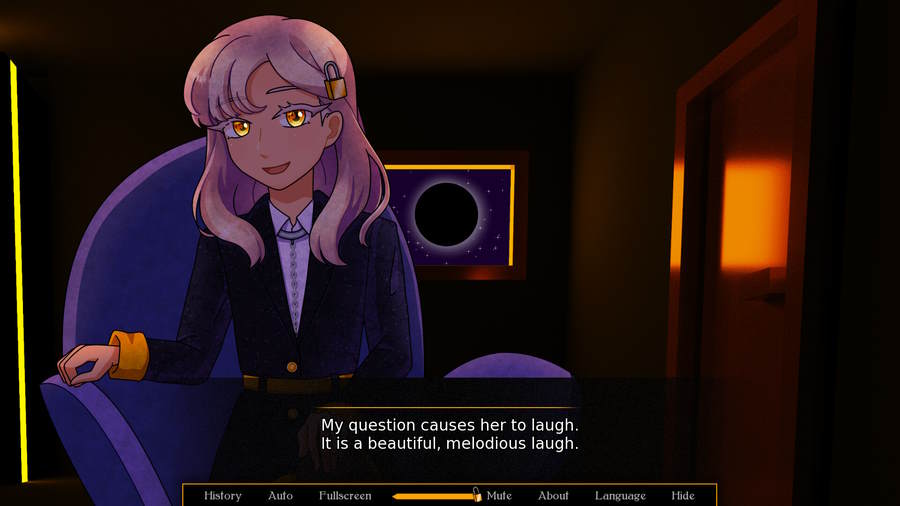Locke(d) Review

Official Score
Overall - 30%
30%
Locke(d) attempts to convey a deep message, but ends up feeling hollow. There’s simply no substance to this visual novel, making it feel more hopeless than the message it is setting out to convey.
Inspired by a passage in one of English philosopher John Locke’s many works, KigyoDev mixes dark themes with a sense of humor in their new visual novel Locke(d). The question is, should players trap themselves in this peculiar situation?
Locke(d) Review
In true visual novel fashion, players wake up in a bleary state unsure as to what is happening. When coming to, the player comes across a woman who they wish to speak to. From there, players can interact with a number of different objects in the room, and get some context as to items like the new moon and a computer that is larger than life.
However, each item in the game has its own greater meaning. Players will soon come to learn about giant computers and how they tie into the Chinese Room Argument, the new moon and the principles of light and darkness, and even the ringed necklace around the host. Despite things appearing simple in this room, the person taking up the majority of the screen real estate is more than happy to indulge. Whatever topic one is talking about, everything in Locke(d) revolves around the concept of being free.

As a result, the message here can be a bit heavy-handed. While the concepts are sound in theory, the execution focuses more on the complex as opposed to deep. Simply stating a concept is one thing, but tying it into a greater narrative is a completely different ballgame. Bioshock touched upon similar concepts more effectively 15 years ago, and unfortunately the same cannot be said of this title’s stock image of an anime girl.
It’s just unfortunate that there’s not too much of a game to speak of. The visual novel format of this title allows there to be a focus on the story, but there’s little variety to speak of. The host has different expressions, but the most the title breaks things up are fades to black, followed by the same shot of the main room.
Locke(d) suffers with its art style too. The computer is made up of different squares, and there is not much else when it comes to artistic choices. In a game that lives and dies by its presentation, it’s hard to get absorbed in a world so static and basic. Even when players figure out a bit more of the mystery behind this whole title, the lack of oomph in the presentation makes it feel the same as it does from the opening moments. More variety in its audiovisual presentation – even a new song than its repeating subdued melody – would have gone a long way.
Locke(d) attempts to convey a deep message, but ends up feeling hollow. There’s simply no substance to this visual novel, making it feel more hopeless than the message it is setting out to convey.



